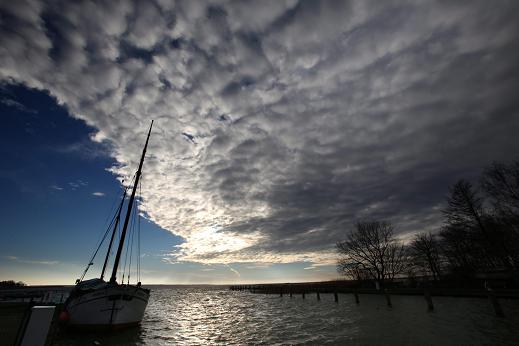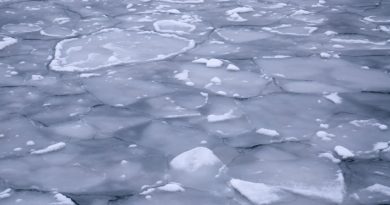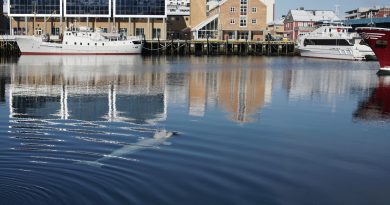Fresh saline pulse reinvigorates Baltic Sea

The Baltic Sea started receiving a new pulse of saline this past weekend, as recent storms have caused the oxygen-rich, dense and salty surface water of the North Sea to mix with the brackish fresher water of the eastern waterway.
Finnish Environment Institute (SYKE) researcher Kai Myrberg says the pulse is “very welcome”, as it replaces bottom layers of the sea and adds revitalizing oxygen to the water.
A new saline pulse has begun in the Baltic Sea, a natural phenomenon caused by high winds and a combination of several other factors. Saline pulses mix sea layers and revitalize the often stagnant lower levels of the Baltic Sea with oxygen. Kai Myrberg of the Finnish Environment Institute says the pulse is “very welcome”, as the last pulse took place over ten years ago in 2003.
“It looks as though it will develop into a full-blown saline pulse. It began this past weekend and is continuing as we speak,” said Myrberg.
During large saline pulses, seawater from the North Sea flows into the Baltic Sea continuously for up to two weeks. It is a rare event, as it requires a longer storm with high winds to push large masses of the denser salt water from the North Sea against the current far enough into the brackish water of the Baltic Sea.
Saline pulses “always noteworthy”
Myrberg says large saline pulses are always worth noting because many conditions have to be met in the right order before the influx of salt water can take place.
He says the recent outflow from the Baltic Sea over the last week has aided in providing the right setting.
“The Baltic Sea is in effect emptying, creating a strong western current that extends all the way to the Danish straits.”
“The water is saline-rich, exceeding most standard Baltic Sea thresholds. In the Arkona Basin off of southern Sweden, a salinity of 22 parts per thousand has been measured, which is very high. In other words, the water is still flowing nicely,” says Myrberg.
Myrberg says the incoming salt pulse travelling along the sea bottom is in practice the only way to renew the water mass at the bottom of the Baltic Sea. Only when the water is sufficiently salty and dense can it displace the old bottom layers and push them along with the flow.
He says the water from the Danish straits contains oxygen and will oxygenize the bottom layers of the Baltic.
“In this respect, it will improve the state of the Baltic Sea.”
Pulse may continue for a week
Myrberg estimated that the saline pulse may continue until the end of the week.
“The most important thing now is that the winds don’t turn against the flow. A western wind would guarantee that even if the pulse grew weaker, the water wouldn’t be sucked back into the North Sea. That would be a bad alternative, if the water would fall back.”
He says there are no indicators that saline content would be falling in the Baltic Sea. Rather, in the Arkona Basin, it appears to be rising, he says.
Myrberg says the situation in the Baltic Sea over the last ten years has been poor, largely for two reasons. First, oxygen depletion is on the rise and second, saline pulses are fewer and farther between.
The saline pulse can single-handedly boost the Baltic fish stock, for example, he adds.
News of the saline pulse commencement was first reported by the Finnish tabloid Iltalehti.
Related stories from around the North:
Canada: Melting Arctic ice called ‘economic time bomb,’ CBC News
Greenland: Greenland’s northeastern ice sheet starting to melt, Eye on the Arctic
Iceland: Polar regions hit by ocean acidification, by Deutsche Welle’s Iceblogger
Norway: Acid Arctic Ocean and Russell Brand?, Deutsche Welle
Russia: Melting permafrost eroding Siberian coasts, Deutsche Welle Ice-Blog
United States: Southwest, southeast Alaska face highest risks from ocean acidification, Alaska Dispatch



